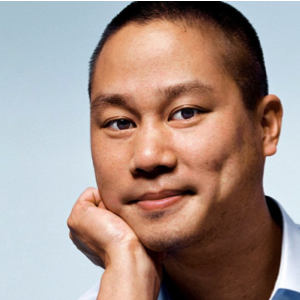Want to know what books Jane Root recommends on their reading list? We've researched interviews, social media posts, podcasts, and articles to build a comprehensive list of Jane Root's favorite book recommendations of all time.
1

The printing press, the pencil, the flush toilet, the battery--these are all great ideas. But where do they come from? What kind of environment breeds them? What sparks the flash of brilliance? How do we generate the breakthrough technologies that push forward our lives, our society, our culture? Steven Johnson's answers are revelatory as he identifies the seven key patterns behind genuine innovation, and traces them across time and disciplines. From Darwin and Freud to the halls of Google and Apple, Johnson investigates the innovation hubs throughout modern time and pulls out the approaches... more The printing press, the pencil, the flush toilet, the battery--these are all great ideas. But where do they come from? What kind of environment breeds them? What sparks the flash of brilliance? How do we generate the breakthrough technologies that push forward our lives, our society, our culture? Steven Johnson's answers are revelatory as he identifies the seven key patterns behind genuine innovation, and traces them across time and disciplines. From Darwin and Freud to the halls of Google and Apple, Johnson investigates the innovation hubs throughout modern time and pulls out the approaches and commonalities that seem to appear at moments of originality. less 
Bill GatesQuite good at giving examples of how you create environments that can encourage good ideas. (Source)

Tony HsiehAuthor Steven Johnson argues in his 2010 book that innovation comes from the collision of ideas. This can happen when an individual working in isolation builds off years of existing knowledge to fuel his insights, or it can happen much more quickly when several creative types bounce ideas off each other in a community like Silicon Valley.
This theory is one of the reasons why Hsieh decided to... (Source)

James AltucherAlso add to this: “How We Got to Now” by Steven Johnson.
Basically: don’t believe the myth of the lonely genius.
Ideas come from a confluence of history, “the adjacent possible” specific geographic locations, etc.
The connections Johnson makes are brilliant. For instance, The Gutenberg Press (which, in itself, was invented because of improvements in sewing looms), made everyone realize they had... (Source)
2

At a time when the studio is making a stunning comeback, film historian Thomas Schatz provides an indispensable account of Hollywood's tradional blend of business and art. This book lays to rest the persistent myth that businesspeople and producers stifle artistic talent and reveals instead the genius of a system of collaboration and conflict. Working from industry documents, Schatz traces the development of house styles, the rise and fall of careers, and the making-and unmaking-of movies, from Frankenstein to Spellbound to Grand Hotel. Richly illustrated and highly... more At a time when the studio is making a stunning comeback, film historian Thomas Schatz provides an indispensable account of Hollywood's tradional blend of business and art. This book lays to rest the persistent myth that businesspeople and producers stifle artistic talent and reveals instead the genius of a system of collaboration and conflict. Working from industry documents, Schatz traces the development of house styles, the rise and fall of careers, and the making-and unmaking-of movies, from Frankenstein to Spellbound to Grand Hotel. Richly illustrated and highly readable, The Genius of the System gives the definitive view of the workings of the Old Hollywood and the foundations of the New. less 
Marina HydeIt’s about how gradually the stars became more savvy: they started saying I want to do this or that kind of movie, because people don’t like to be told they’re one sort of star. But people didn’t want to see Bogart going insane for example: he’s a cynic, and also a romantic, and you want to see that Warners’ style. That’s something Schatz deals with – that all the major studios developed a very... (Source)

Jane RootThis is an amazing book. It’s an academic book, but it reads like a novel. It was a very important book for me when I was studying film and television. Film theory was dominated for many years by the idea of the auteur, the single visionary director who managed, in the hell of the industrial system that was Hollywood’s studio system, to nonetheless produce amazing individual work. Thomas Schatz’s... (Source)
3

What happened to network television in the 1980s? How did CBS, NBC, and ABC lose a third of their audience and more than half of their annual profits?
Ken Auletta, author of Greed and Glory on Wall Street, tells the gripping story of the decline of the networks in this epically scaled work of journalism. He chronicles the takeovers and executive coups that turned ABC and NBC into assets of two mega-corporations and CBS into the fiefdom of one man, Larry Tisch, whose obsession with the bottom line could be both bracing and appalling.
Auletta takes us inside the CBS... more What happened to network television in the 1980s? How did CBS, NBC, and ABC lose a third of their audience and more than half of their annual profits?
Ken Auletta, author of Greed and Glory on Wall Street, tells the gripping story of the decline of the networks in this epically scaled work of journalism. He chronicles the takeovers and executive coups that turned ABC and NBC into assets of two mega-corporations and CBS into the fiefdom of one man, Larry Tisch, whose obsession with the bottom line could be both bracing and appalling.
Auletta takes us inside the CBS newsroom on the night that Dan Rather went off-camera for six deadly minutes; into the screening rooms where NBC programming wunderkind Brandon Tartikoff watched two of his brightest prospects for new series thud disastrously to earth; and into the boardrooms where the three networks were trying to decide whether television is a public trust or a cash cow.
Rich in anecdote and gossip, scalpel-sharp in its perceptions, Three Blind Mice chronicles a revolution in American business and popular culture, one that is changing the world on both sides of the television screen. less 
Jane RootThis is another book where you can recognise that intersection between creativity and industry. It’s about a system that starts off with the amazing golden days of the big three TV networks, emphasising particularly Brandon Tartikoff’s time at NBC, which involved in the creation of Miami Vice, LA Law, The Golden Girls, Hill Street Blues – an incredible range of amazing projects. But it’s a story... (Source)
4

Created by Ricky Gervais and Stephen Merchant, The Office is arguably the first British TV masterpiece of the new century. Gervais stars as David Brent, branch manager of a paper merchants located on a trading estate in the soulless confines of Slough, south-east England. A mock fly-on-the-wall documentary which is by turns satirical, bitter and poignant, The Office first aired in 2001, finding a solid cult audience. But its second season and the subsequent two-part Christmas special found huge mainstream popularity; when it was released on DVD, The Office became the UK's fastest- and... more Created by Ricky Gervais and Stephen Merchant, The Office is arguably the first British TV masterpiece of the new century. Gervais stars as David Brent, branch manager of a paper merchants located on a trading estate in the soulless confines of Slough, south-east England. A mock fly-on-the-wall documentary which is by turns satirical, bitter and poignant, The Office first aired in 2001, finding a solid cult audience. But its second season and the subsequent two-part Christmas special found huge mainstream popularity; when it was released on DVD, The Office became the UK's fastest- and biggest-selling television show ever in that medium. Gervais is grotesquely captivating as the smug, insecure, unreconstructed piglet of a manager whose inflated ego is belied by his incomprehensible jargon. His lieutenant and sidekick Gareth (Mackenzie Crook) is a gormless fantasist with comparable (though military) delusions of grandeur. Together they turn the workplace into a surreal circus worthy of Sartre - to the disbelief or bafflement of their co-workers, notably Tim (Martin Freeman), the cynical sales clerk, and Dawn (Lucy Davis), the wistful receptionist. Ben Walters traces the roots of The Office in the history of British comedy: David Brent is heir to a whole line of pathetic ogres, including Albert Steptoe, Basil Fawlty and Alan Partridge. Drawing on extensive interviews with Gervais and Merchant conducted specially for this book, Walters explores how the show came to be made, what it has to say about contemporary Britain, and why it achieved such spectacular (and international) success. less 
Jane RootThis book tells the story of how something with the most unlikely origins, something that started off with a tiny little mini-pilot made by the BBC, became something that is now in, I think, its eighth season in America, with different versions in India, Latin America, Japan, and all around the world. There were two really big, good ideas in the creation of The Office. The first was Stephen... (Source)
5

Noah Cross, Norma Desmond, Norman Bates, Harry Lime—these are a few of nearly 100 names that inhabit the mind of the narrator as he starts to compose short biographies of some of the most famous characters in the history of film noir. He sketches in whole lives, lives as intense as the dreams put up on the screen. The book begins to become a novel when the characters start to meet each other outside their respective films—as if they were real people with needs and passions. The names and faces are familiar to us—Jake Gittes from Chinatown, Laura Hunt and Waldo Lydecker from... more Noah Cross, Norma Desmond, Norman Bates, Harry Lime—these are a few of nearly 100 names that inhabit the mind of the narrator as he starts to compose short biographies of some of the most famous characters in the history of film noir. He sketches in whole lives, lives as intense as the dreams put up on the screen. The book begins to become a novel when the characters start to meet each other outside their respective films—as if they were real people with needs and passions. The names and faces are familiar to us—Jake Gittes from Chinatown, Laura Hunt and Waldo Lydecker from Laura, Rick and Ilsa from Casablanca—but is it true that Noah Cross and Norma Desmond were lovers in the 1920s, that she and Joe Gillis had a son who grew up to be Julian Kay in American Gigolo? The narrator is not merely the author, he has a mission to carry out—a lost family link to find, a thread to pull so that nearly all these disparate characters come together to form a kind of society. Ultimately this examination on how movies affect audiences—not only shaping perceptions and memories, but in some ways coming to stand in for them—can also be read as an unsettling examination of identity and the construction of self through the medium of narratives; or simply as a fascinating take on movie fandom. less 
Jane RootThis is a novel. Well sort of a novel. Somewhere between a novel and a film history book. David Thomson is a very eminent historian of film and his Biographical Dictionary of Film is one of those vast seminal texts everyone knows about in film studies. But this is a novel and what’s really important about it is that it allows you, the reader, to finish the story of people in big films and find... (Source)
Don't have time to read Jane Root's favorite books? Read Shortform summaries.
Shortform summaries help you learn 10x faster by:
- Being comprehensive: you learn the most important points in the book
- Cutting out the fluff: you focus your time on what's important to know
- Interactive exercises: apply the book's ideas to your own life with our educators' guidance.


